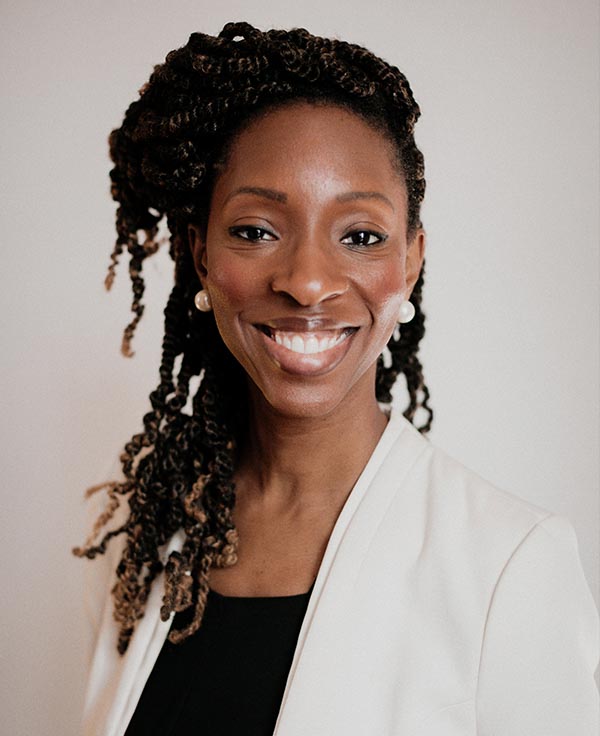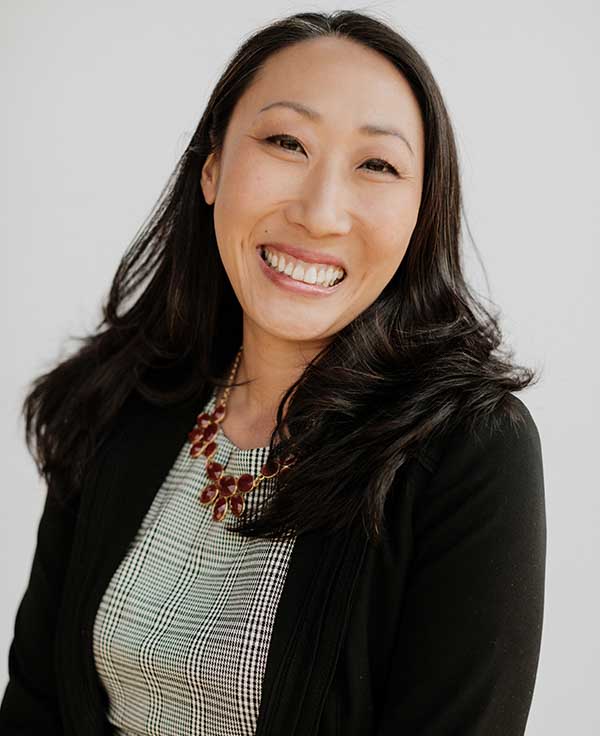In our six-part blog series, we explore cross-cutting themes that surfaced in our DEI in Action case studies, and that we see again and again in our work with organizations across the country. As we delve into the challenges and successes of Blue Engine, College Track, and TNTP’s DEI efforts, we first extend gratitude to the many leaders and staff members who were courageously candid with us. It’s because they were willing to vulnerably pull back the curtain — in front of the world — that we’re now able to learn from patterns and leverage these learnings to build more inclusive, radically human workplaces. In this month’s blog, we take a closer look at a theme that surfaced in Blue Engine and TNTP’s cases — the often overlooked and inherently disproportionate burden that people of color bear in DEI work.
—–
At two standing-room-only convenings earlier this year, Promise54’s own Lucerito Ortiz and UnSuk Zucker created an intentional space for a side conversation we’d participated in and overheard many times over — about the benefit and the burden of being a person of color engaging in DEI work. We need to create a space for us, people of color, to talk about the extra, unpaid, invisible labor we’re doing in organizations every day. Too often, we’re expected to do all of the above — to spot, interrupt, and fix inequitable structures — without recognition or reparations.
The same all-of-the-above burden surfaced in Blue Engine and TNTP’s stories as staff of color and white senior leaders described major inflection points in both organizations’ DEI efforts. At Blue Engine, CEO Anne Eidelman and senior leader Aisha Chappell describe the powerful moment when Erick Roa — a staff member of color — spotted misalignment between the organization’s values around supporting students most in need and the organization’s practice of focusing on “bubble kids.” While Erick’s out-loud reflections at an all-staff meeting made the small, mission-driven team uncomfortable, the interruption also sparked the team’s collective pause to reflect, discuss, and redesign practices to better align with values. Similarly at TNTP, staff of color and CEO Dan Weisberg describe a courageous interruption by Latinx affinity group members who noted an exclusive decision-making process around how to support the Puerto Rico Department of Education after Hurricane Maria. Latinx staff spotted the exclusive process, interrupted it by speaking up with one another as well as the organization’s senior leaders, and committed to fixing the process themselves by redesigning protocols for inclusive decision-making and sharing a different recommendation with senior leadership. In the end, TNTP adopted the Latinx affinity group’s solution, with CEO Dan Weisberg’s organization-wide apology and acknowledgement.
Both Blue Engine and TNTP paused, held up a mirror, and took stock because vocal people of color spotted the inequity, interrupted the status quo by speaking up, and led the charge to fix the inequitable system. All of the above. And while the outcomes of both organizations’ inflection points were notably positive, the reality remains that people of color bear an often overlooked and inherently disproportionate burden in DEI work. As faculty of color, Black women, and other voices from historically marginalized communities have shared before, the risks for bearing that disproportionate burden are substantial. The cost of speaking up can be literal, as people of color lose their jobs for “rocking the boat.” The cost can be deeply emotional and mental, as people of color relive micro- and macro-aggressive experiences by speaking up and facing ignorance or outright re-silencing. And the cost can be political, as people of color are ostracized at work for implying that “good people” can perpetuate inequity too.
And despite the potential cost, staff members of color at Blue Engine, at TNTP, and in organizations across the country take on this disportionate burden anyway. Why? We’ve heard and experienced versions of “because no one will tell our stories better than we can, we take on the unpaid labor anyway” and “because I’m an integral part of my own liberation, I choose to speak out every time.” When we facilitate sessions on this topic, we ask people of color to write a letter to themselves and to the field, naming their commitment to balancing the all-of-the-above burden and caring for themselves and each other in the process. Some of those letters remind us of our wholeness as individuals, our community of at-the-ready allies, and our [respons]ability to tap in or out whenever we inevitably must.
“Beloved,
You are whole. You already have everything you need. Your fire isn’t just needed or wanted — it is critical and necessary. So, I give you permission to be YOU and SHOW THEM THE FIRE!”
“You don’t have to do this work alone. In fact, it is much better to do it in community with your colleagues and allies. Notice your body and then listen to it. It has been trying to tell you when it needs a break, but you’ve ignored it…When your heart rate is consistently elevated, when your irritability is on HIGH, when your palms are sweaty and breathing becomes labored, take a break. Tap out. Communicate your fatigue to your allies; communicate your fatigue to the people who need to change most.”
“You can both claim your power and protect your well-being … by strategically dis-engaging and strategically engaging. If you are having a strong reaction, write a note about it. Ask to re-visit it. But don’t be silent forever. Come back to it when you’ve had time, perspective, and [restored your] sense of humanity … Your intuition is strong, your experience varied, and your heart loving. It is okay to insert/ disrupt/ remind/ redirect/ reimagine.”
All of the above. Spotting, interrupting, and fixing can mean that we build allyship and enlist accomplices in our organizations. Sharing our lived experiences can paint a visual image of our invisible labor so that it’s no longer overlooked or ignored. Speaking our truth can mean feeling more emotionally liberated and authentic in the workplace. And yet, as our letters to ourselves advise us, we must mitigate the weight of the burden even as we continue to lead our own liberation. Here’s what we have committed to — and what we offer to our people:
- Assess the risk:
- Am I truly alone or can I enlist others — both within and outside of my identity group?
- Do I have a plan for when to engage versus when not to engage because the costs are too high?
- Do I have a plan for protecting myself if fragility turns to animosity?
- Determine your radically human path forward:
- Do it boldly and with intention. Enlist others within and outside of your identity group to chime in first or later. Plan how to enter an interruption conversation and with whom. Have a vision for shared responsibility to fix inequities.
- Give yourself permission to say “not today.” Call others forward to speak up and alleviate your individual responsibility to explain and educate.
- Reimagine the definition of self care. Understand the role oppression plays in our challenges to achieve wellness. While the conventional sense of self care focuses on short-term relief for the individual, community care aims to address the deeply embedded structural oppression that many of us face.
In acknowledgement and in solidarity.
KIMBERLY OSAGIE
Partner
She/Her/Hers
Contact Kimberly: kimberly@promise54.org
UNSUK ZUCKER
Partner
She/Her/Hers
Contact UnSuk: unsuk@promise54.org


